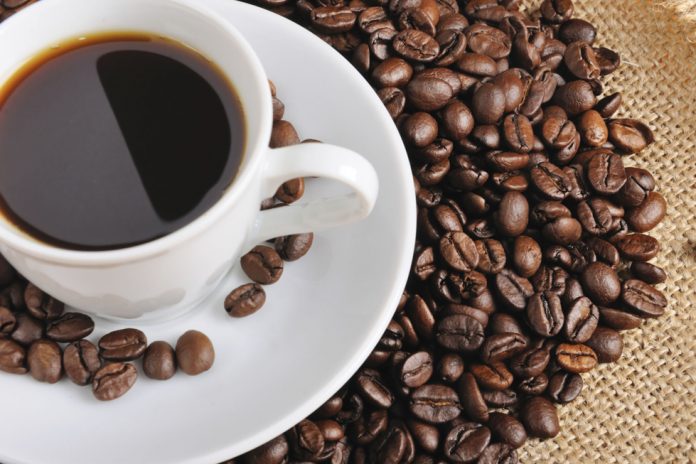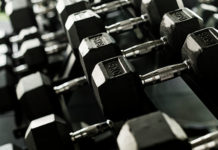Performance enhancement for activities of prolonged duration
By Crystal Chanderbhan ND
Caffeine is a mild stimulant that occurs naturally in at least 63 plant species. It is found in the leaves, stems, seeds and roots of these various plants. Caffeine (1,3,7-trimethylxanthine) is part of the methylxanthine family and consists of a xanthine molecule with three methyl groups attached to it. Caffeine can be found in products like sodas, tea and coffee, however, it also occurs in several other products such as prescription medications, diuretics and pain relievers. Caffeine has a number of physiological effects. The pharmacological properties of caffeine have been long prized by shift workers, the military, athletes, students and others who need to prolong their mental and physical functions (Burke 2008). These people view caffeine as a helpful stimulant that increases concentration, awareness and many other physical traits. The important thing to remember is that caffeine’s effects vary based on the person, the amount ingested, the frequency of consumption and individual metabolism. The focus of the following article is to review evidence of caffeine as an ergogenic aid (a substance that enhances physical performance) among elite athletes.
MECHANISMS OF ACTION
Once ingested, caffeine is metabolized by the liver and measurable levels of it appear in the blood stream within 15-45 minutes; peak concentrations are evident within one hour of ingestion, and after three to six hours, up to 75 per cent has left the body via the kidneys (Goldstein 2010). Caffeine also has the ability to cross the blood brain barrier (Goldstein 2010).
Caffeine alters substrate utilization by increasing free fatty acid mobilization while sparing muscle glycogen (Essig 1980, Spriet 1992). When glycogen stores are spared, fatigue and pain associated with prolonged exercise are delayed, allowing the athlete to sustain their performance for a greater duration. To further support this, Laurent et al (2000) found that caffeine increases the secretion of B-endorphins, which serve to decrease pain perception. While caffeine supplementation can improve sports performance, various factors, such as the condition of the athlete, type of activity (endurance, moderate intensity, team sport) and dose of caffeine, are all notable variables. It has also been suggested that caffeine antagonizes adenosine receptors expressed in the basal ganglia, the structure responsible for various aspects of motor control (Fisone 2004), thus promoting elevated neurotransmitter functionality.
EFFECT ON ATHLETIC PERFORMANCE
Evidence for endurance sports (performance required for longer than 60 minutes) and high intensity sports (less than 60 minutes of performance) comprise the majority of studies that exist, compared to strength or true sprint sports. Running, cycling, rowing and swimming are typical activities that are represented in the literature. Please refer to Table 1 for a summary.
All studies involved a range of highly trained to elite athletes, which is reflected in the small sample sizes of existing clinical trials. In addition, laboratory-based studies typically quantify the effect of caffeine with respect to performance by using a time-to-exhaustion model versus measured end-points of set distance or time with best effort, which is more applicable to real-life sport events (Ganio 2009, Burke 2008).
Research typically shows that ingestion of between 3-9 mg/kg body weight caffeine prior to exercise increases performance, resulting in a urinary caffeine level below the acceptable limit of 12 micrograms/ml allowed by the International Olympic Committee (Spriet 1995).
COFFEE OR ANHYDROUS CAFFEINE?
The studies listed in Table 1 used anhydrous caffeine capsules; however, this is not to say that other forms of caffeine supplementation have not been explored. In a double-blinded study conducted at the University of Guelph (Graham 1998), nine aerobically conditioned runners performed five treadmill runs to exhaustion at 85 per cent VO2max after receiving either anhydrous caffeine plus water, regular coffee, decaffeinated coffee, decaffeinated coffee plus anhydrous caffeine, or placebo one hour prior to activity. In all trials, caffeine was dosed at 4.45mg/kg of body weight and participants were instructed to abstain from all caffeine containing foods and beverages 48 hours prior to each run. When compared to the four other treatments, anhydrous caffeine significantly increased endurance (p<0.05) resulting in participants running an additional 2-3 km (Graham 1998). McLellan and Bell (2004) sought to examine whether prior coffee consumption would impact the ergogenic effects of anhydrous caffeine. 13 subjects in a crossover design consisting of six separate testing days, cycled to exhaustion, performing at 80 per cent VO2max. Subjects consumed one cup of coffee (approximately 1mg/kg caffeine), and 30 minutes later ingested either of the following six conditions: decaffeinated coffee with placebo capsules; decaffeinated coffee with anhydrous caffeine at 5 mg/kg, coffee at 1.1 mg/kg with anhydrous caffeine (dosed at 3, 5, 7 mg/kg), and water with anhydrous caffeine at 5 mg/kg. The results indicated caffeine supplementation significantly increased exercise time to exhaustion, regardless of whether anhydrous caffeine was consumed after a cup of regular or decaffeinated coffee (McLellan 2004). Anhydrous caffeine supplementation (3, 5 and 7 mg/kg) provided an average increase in performance of 24 per cent over placebo (McLellan 2004). Demura et al (2007) examined the effect of coffee on athletic performance. Ten adults performed a cycling exercise at 60 per cent VO2max for one hour. Participants drank either coffee with a caffeine content of 6mg/kg or decaffeinated coffee one hour prior to beginning the task, participating in both conditions at a one-week interval. The only significant finding was a decreased rating of perceived exertion during submaximal endurance exercises with no significant differences in any physiological responses (oxygen uptake, respiratory exchange ration, heart rate, plasma lactate concentration). HABITUATION The magnitude of efficacy that caffeine can have on athletic performance depends on the athlete’s daily caffeine habit. Bell and McLellan (2002) demonstrated that both users (greater than 300 mg/d) and non-users (less than 50 mg/d) of caffeine experienced an enhancement in performance when given 5 mg/kg caffeine prior to exercise, however, the effects lasted three hours longer for non-users. It is important to take into consideration how caffeine can affect those who habitually consume caffeine and those who do not. In a study of 22 participants, 6 mg/kg caffeine or placebo was given one hour prior to one-repetition maximum muscular strength, resulting in 13 participants describing feelings of greater energy, elevated heart rate, restlessness and tremor (Astorino 2008). These feelings were enhanced in those who reported minimal caffeine consumption on a daily basis. Thus, dose and timing of caffeine must be tailored to the individual to avoid habituation and undesirable effects. CONCLUSION Current research supports the use of caffeine as an ergogenic aid for endurance and moderate-to-high intensity activities. Therapeutic doses range from 3-9 mg/kg body weight of anhydrous caffeine prior to exercise, resulting in a urinary caffeine level below the acceptable limit of 12 micrograms/ml allowed by the International Olympic Committee. Caffeine’s ability to stimulate fat oxidation while simultaneously sparing muscle glycogen allows the athlete to maintain maximal performance during episodes of prolonged physical activity. Caffeine’s ability to stimulate fat oxidation while simultaneously sparing muscle glycogen allows the athlete to maintain maximal performance during episodes of prolonged physical activity. REFERENCES: Astorino TA, Rohmann RL, Firth K, Kelly S. Effect of caffeine ingestion on one-repetition maximum muscular strength. Eur J Appl Physiol 2008; 102:127-32. Bell DG, McLellan TM. Exercise endurance 1, 3, and 6 h after caffeine ingestion in caffeine users and nonusers. J Appl Physiol 2002; 93:1227-34. Bridge CA, Jones MA. The effect of caffeine ingestion on 8 km run performance in a field setting. J Sports Sci. 2006; 24(4):433-9. Burke LM. Caffeine and sports performance. Appl. Physiol. Nutr. Metab. 2008; 33:1319-1334. Cox GR, Desbrow B, Montgomery PG, Anderson ME, Bruce CR, Macrides TA, Martin DT, Moquin A, Roberts A, Hawley JA, Burke LM. Effect of different protocols of caffeine intake on metabolism and endurance performance. J Appl Physiol. 2002; 93(3):990-9. Demura S, Yamada T, Terasaw N. Effect of coffee ingestion on physiological responses and ratings of perceived exertion during submaximal endurance exercise. Percept Mot Skills. 2007 Dec;105(3 Pt 2):1109-16. Essig D, Costill DL, Van Handel PJ: Effects of caffeine ingestion on utilisation of muscle glycogen and lipid during leg ergometer exercise. Int J of Sports Med. 1980; 1:86-90. Fisone G, Borgkvist A, Usiello A. Caffeine as a psychomotor stimulant: mechanism of action. Cell Mol Life Sci. 2004; 61(7-8):857-72. Ganio MS, Klau JF, Casa DJ, Armstrong LE, Maresh CM. Effect of caffeine on sport-specific endurance performance: a systematic review. J Strength Cond Res. 2009; 23(1):315-24. Goldstein ER, Ziegenfus T, Kalman D, Kreider R, Campell B, Wilborn C, Taylor L, Willoughby D, Stout J, Graves SB, Wildman R, Ivy JL, Spano M, Smith AE, Antonio J. International society of sports nutrition position stand: caffeine and performance. J Int Soc Sports Nutr. 2010; Jan 27;7(1):5. Graham TE, Hibbert E, Sathasivam P. Metabolic and exercise endurance effects of coffee and caffeine ingestion. J Appl Physiol. 1998; 85(3):883-9. Hunter AM, St Clair Gibson A, Collins M, Lambert M, Noakes TD. Caffeine ingestion does not alter performance during a 100km cycling time-trial performance. Int J Sport Nutr Exerc Metab. 2002; 12(4):438-52. Jenkins NT, Trilk JL, Singhal A, O’Connor PJ, Cureton KJ. Ergoenic effects of low doses of caffeine on cycling performance. Int J Sport Nutr Exerc Metab. 2008; 18(3):328-42. Laurent D, Schneider KE, Prusaczyk WK, Franklin C, Vogel SM, Krssak M, Petersen KF, Goforth HW, Shulman GT. Effects of caffeine on muscle glycogen utilization and the neuroendocrine axis during exercise. J Clin Endocrinol Metab. 2000; 85:2170-75. McLellan TM, Bell DG: The impact of prior coffee consumption on the subsequent ergogenic effect of anhydrous caffeine. Int J of Sport Nutr Exerc Meta. 2004; 14:698-708. Paton CD, Lowe T, Irvine A. Caffeinated chewing gum increases repeated sprint performance and augments increases in competitive cyclists. Eur J Appl Physiol. 2010; Aug 25. [Epub ahead of print]. Ping WC, Keong CC, Bandyopadhyay A. Effects of acute supplementation of caffeine on cardiorespiratory responses during endurance running in a hot & humid climate. Indian J Med Res. 2010; 132:36-41. Spriet LL. Caffeine and performance. Int J of Sport Nutr. 1995; 5:S84-99. Spriet LL, MacLean DA, Dyck DJ, Hultman E, Cederblad G, Graham TE. Caffeine ingestion and muscle metabolism during prolonged exercise in humans. Am J Physiol. 1992; 262:E891-8. Vandenbogaerde TJ, Hopkins WG. Monitoring acute effects on athletic performance with mixed linear modeling. Med Sci Sports Exerc. 2010; 42(7):1339-44. Wiles JD, Coleman D, Tegerdine M, Swaine IL. The effects of caffeine ingestion on performance time, speed and power during a laboratory-based 1km cycling time-trial. J Sports Sci. 2006; 24(11):1165-71.









